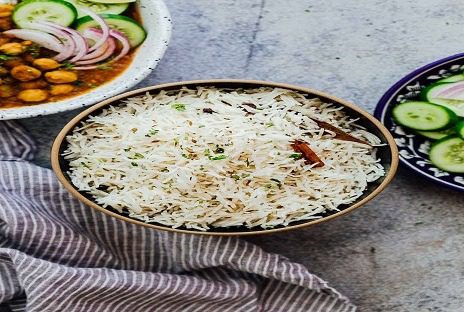BLACK CUMIN POWDER & SEEDS
cumin is one of the most aromatic spices on the planet with its earthy, pungent aroma and hints of sweet, lemony-pine scent. The seeds have a strong and slightly bitter flavor, but when they are toasted in hot oil or a dry pan, the bitterness and strong pungency gives way to a smooth nutty flavor. No wonder it is one of the most widely used spices, especially when creating curry dishes or for making hummus.
The black cumin,also called kala jeera, is a relative of the brown cumin, but produces much smaller seeds that are thinner and less pungent. Actually, they are just a darker version of the brown cumin seeds, yet the difference between the two is not only the color but in the flavor as well. The black seeds are more reminiscent of fennel with a sweeter lemony caraway flavor.
Black cumin is not as widely used around the world in cooking as the brown seeds. They are more prevalent in Pakistan, North African and Middle Eastern cuisine. These regions use the black seeds to make curries, breads and chutneys. Oftentimes, the black cumin seeds get confused with Nigella sativa, because of the color and size of the seed, but they are totally different. The Nigella seeds do have a similar pungent flavor as the black cumin, but are more along the tones of fennel, coriander and nutmeg and they are mostly used for making liqueurs and confectionery.
Even though the brown cumin is mostly associated with North African and Asian cooking, the seeds are also commonly used in Mexican and Mediterranean food. Some other unique ways to use cumin would be to add flavor to legumes, grains, root vegetables, and just about any type of meat, as well as breads.
Cumin is not only an essential ingredient for making the renowned curry based sauces, it can also complement other exotic spice blends such as ras el hanout or garam masala.
BLACK CUMIN SEEDS / KALA JEERA
Nutrition Table
Saturated Fatty Acid
Carbohydrate
Dietary Fiber
Energy
Fat
Protein
Sugar
Sodium
– 8.9%
– 31.4%
– 12.4g / 100g
– 376.0 kcal / 100g
– 20.5%
– 17.1%
– 0.5%
– 246mg / kg
The % Daily Value (DV) tells you how much a nutrient in a serving of food contribute to a daily diet. 2,000 calories a day is used for general nutrition advice.
The % Daily Value (DV) tells you how much a nutrient in a serving of food contribute to a daily diet. 2,000 calories a day is used for general nutrition advice.
PACKAGING QUANTITIES
FAMILY
BOTANICAL NAME
COMMON NAME
–UMBELLIFERS
–CUMINUM CYMINUM
–BLACK CUMIN
Adult reference intake per each 1g of portion of Black cumin seeds contains :
Energy
15.73 kj
3.76 kcal
<1%
Fat
0.20g
<1%
Saturates
0.09g
<1%
Sugar
0.01g
<1%
Salt
0.01g
<1%
Typical values per 100g:
Energy 376.00 kcal 1573.18 kj
BENEFITS OF CONSUMING CUMIN
Cumin seeds’ health benefits mainly come from their phytochemicals, which are touted to have carminative, antioxidant and anti-flatulent properties. They’re also an excellent source of dietary fiber, vitamins A, E, B and C and antioxidant carotene lutein and zeaxanthin. Health-promoting minerals in cumin include:
- Iron and copper: both minerals are essential for red blood cell production and formation.
- Zinc: It’s a co-factor that’s needed by enzymes that work to regulate digestion, growth and development and nucleic acid synthesis.
- Potassium: A crucial component of cells and body fluids, and is necessary for controlling blood pressure and heart rate.
- Manganese: A co-factor for superoxide dismutase, which is a powerful antioxidant enzyme.
Considering its small size, it’s absolutely impressive that cumin benefits your overall health, and may even help alleviate ailments, such as:
- Stress: A 2011 animal study published in the Pharmaceutical Biology journal found that cumin helped inhibit stress-induced biochemical changes in rats, which also improved their memory and cognition. According to the study authors:
- Respiratory disorders: Its anti-congestive effects may be beneficial for people with asthma and bronchitis. This spice also works as an expectorant that loosens mucus and phlegm in the respiratory tract
- Sleeping disorder: One curious characteristic of cumin is that although it’s a stimulant, it can also work as a relaxant, making it potentially helpful for alleviating insomnia.
- Diabetes: Research is still ongoing, but animal studies found that cumin may help reduce the risk of hypoglycemia. The test subjects who were given cumin seeds had a sharp decline in hypoglycemia, as well as a decrease in glycosuria.
- Cancer: Cumin may have anticancer properties, as it stimulates the secretion of chemopreventive and detoxifying enzymes from the glands.



